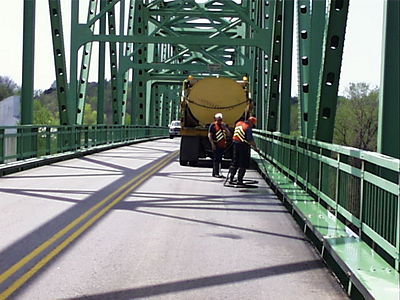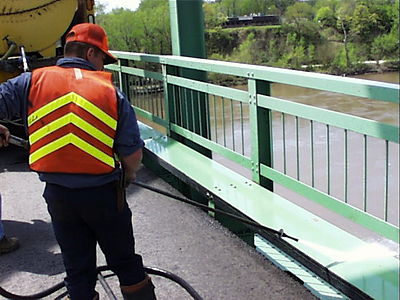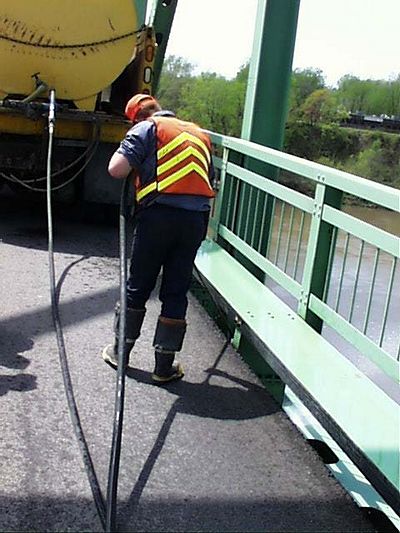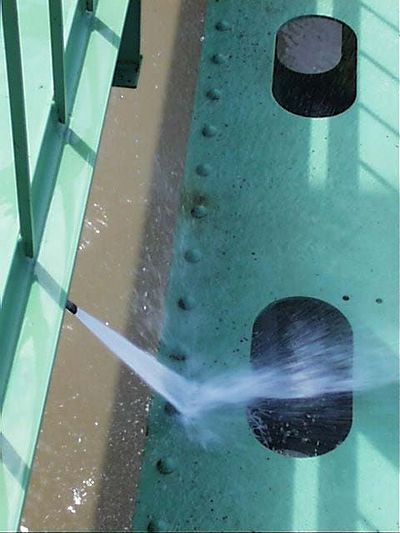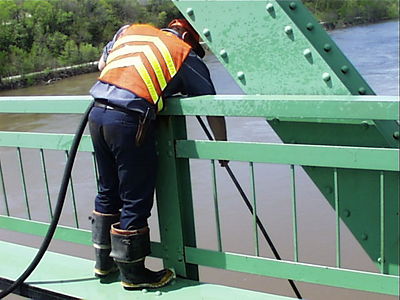771.2 Bridge Cleaning and Flushing: Difference between revisions
m Updated activity code. |
|||
| Line 1: | Line 1: | ||
{|style="padding: 0.3em; margin-left:15px; border:1px solid #a9a9a9; text-align:center; font-size: 95%; background:#f5f5f5" width="160px" align="right" | {|style="padding: 0.3em; margin-left:15px; border:1px solid #a9a9a9; text-align:center; font-size: 95%; background:#f5f5f5" width="160px" align="right" | ||
|- | |- | ||
|'''Code:''' | |'''Code:''' R327 or R913 | ||
|} | |} | ||
Revision as of 13:30, 31 December 2008
| Code: R327 or R913 |
Bridge cleaning and flushing is done to remove dirt and debris to allow proper drainage and drying of the deck. The dirt and debris holds moisture and chlorides that cause deterioration. Deck flushing should be done throughout the winter months when needed and temperatures safely permit. Thorough cleaning of entire bridge should be accomplished in the spring following snow season and again in the fall prior to snow season. This cleaning should include deck, piers, abutments, and lower chords of truss bridges.
Procedures
1. Set up proper traffic control.
2. Remove all dirt and debris and insure that all curb outlets and pipe drains are clean.
3. Heavy buildup of dirt and debris may require removal prior to flushing. Sweeping or brooming is beneficial to supplement flushing.
4. Adequate water supply and pressure is needed for effective flushing.
5. Spring and fall flushing should include all bridge items, drain system, drain basins, and under expansion devices.
Safety
Run off from flushing needs to be controlled to prevent property damage.
